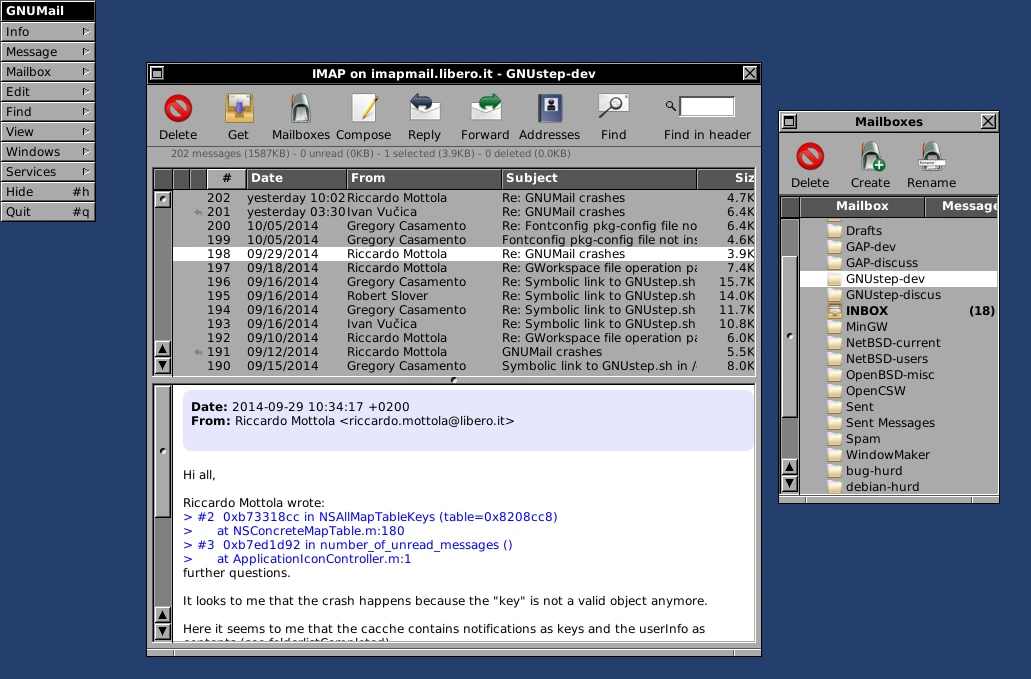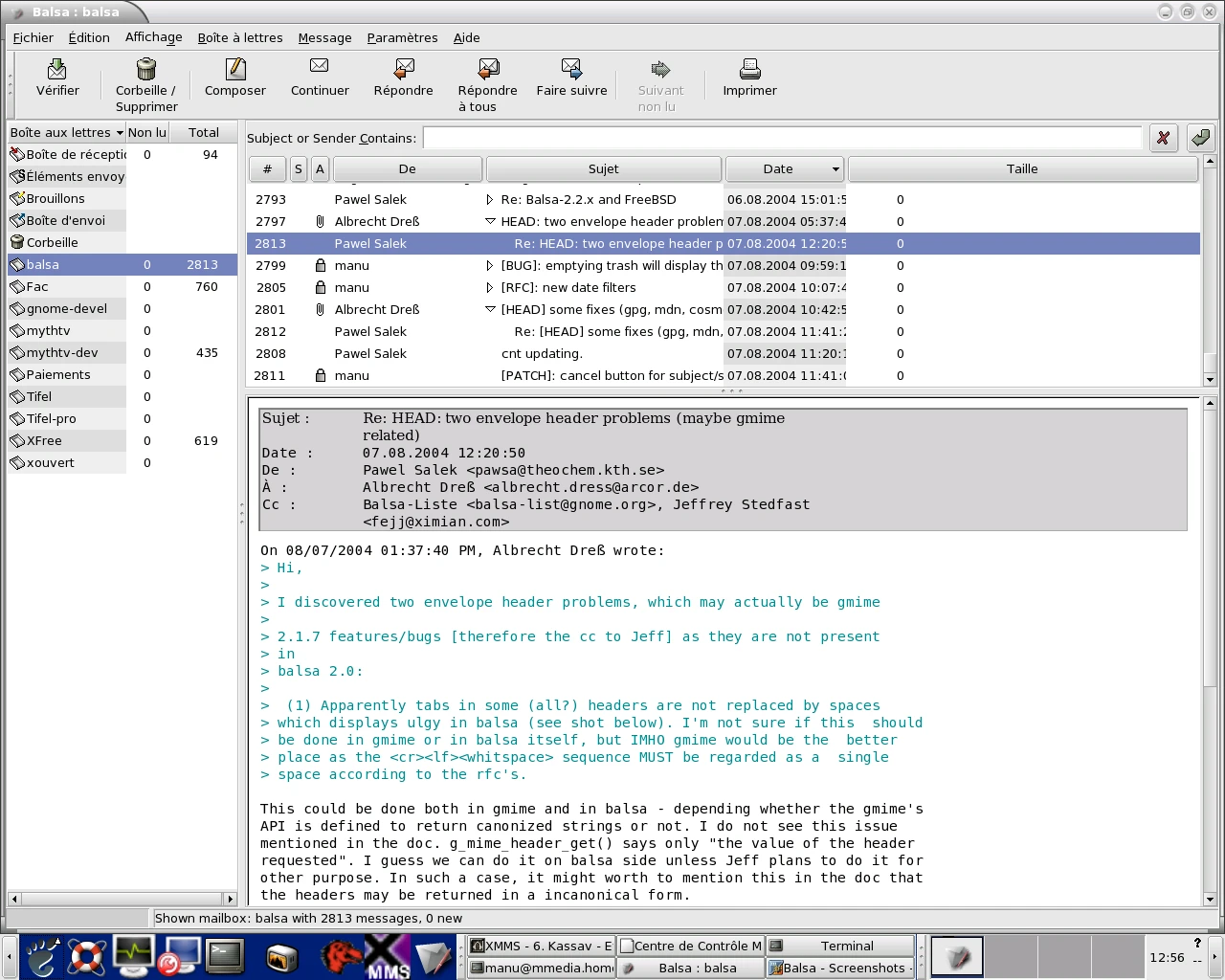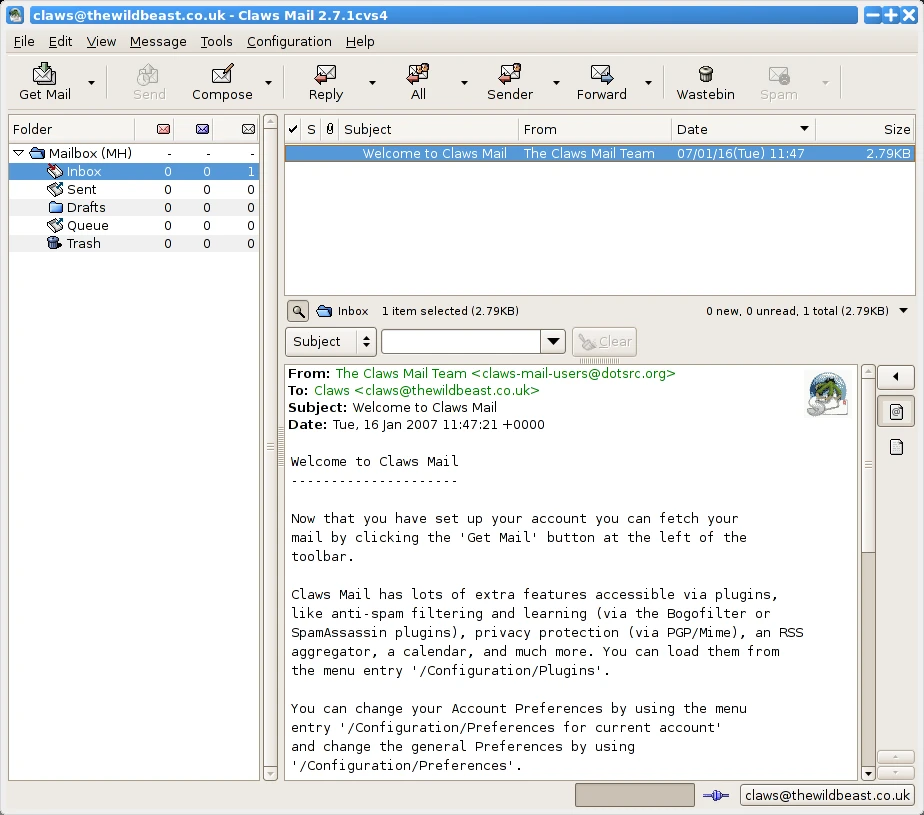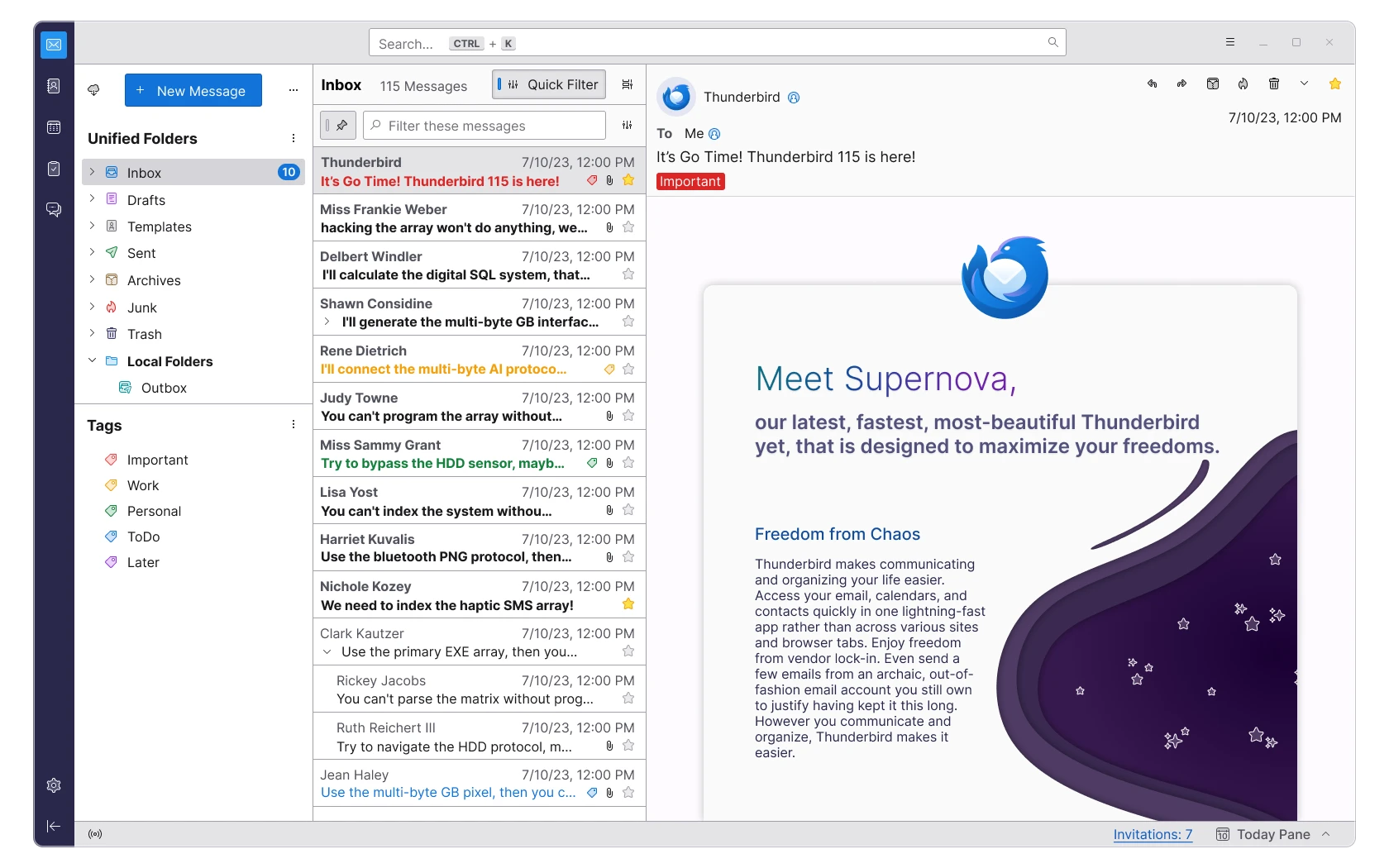Are you tired of struggling with email apps that just don’t fit your workflow on Ubuntu? Finding the best email client can save you time, keep your inbox organized, and boost your productivity like never before.
Whether you want something simple or packed with features, the right tool is out there waiting for you. You’ll discover the top email clients designed specifically for Ubuntu, helping you take control of your emails with ease. Keep reading to find the perfect match for your needs and make your email experience smooth and stress-free.

Credit: forwardemail.net
Criteria For Choosing Email Clients
Choosing the right email client for Ubuntu needs careful thought. The right choice can improve daily communication and save time. Focus on important features that match your needs. This helps find a tool that works smoothly with your system and tasks.
User Interface And Experience
The email client should be easy to use and clear. Simple menus and buttons make it faster to manage emails. Look for a clean layout that reduces clutter. It helps avoid confusion and speeds up your work. Good design means less stress and fewer mistakes.
Security And Privacy Features
Email often carries personal and sensitive data. Strong security protects this information from threats. Encryption options keep emails safe during sending and receiving. Features like spam filters and phishing protection guard against attacks. Privacy controls prevent unauthorized access to your account.
Compatibility And Integration
The client must support popular email services and protocols. IMAP, POP3, and SMTP compatibility is essential. Integration with calendars and contacts enhances productivity. Support for plugins or extensions adds useful tools. Compatibility ensures smooth syncing across devices and platforms.
Performance And Resource Usage
The email client should run fast without slowing the system. Low memory and CPU use keep Ubuntu responsive. Quick loading times improve user satisfaction. Efficient performance helps when handling many emails daily. Choose a client that balances speed and resource use well.
Popular Email Clients For Ubuntu
Ubuntu users need reliable email clients for daily communication. The right email client helps manage messages efficiently. It supports multiple accounts and offers a smooth user experience. Here are some popular email clients that work well on Ubuntu.
Thunderbird
Thunderbird is a free, open-source email client. It supports multiple accounts and has strong security features. Its interface is simple and easy to use. Users can customize it with many add-ons. Thunderbird also supports calendar and task management.
Evolution
Evolution combines email, calendar, and contacts in one app. It integrates well with GNOME desktop on Ubuntu. The app supports Microsoft Exchange and other email services. Evolution offers good spam filtering and encryption features. It is suitable for both personal and professional use.
Geary
Geary is a lightweight and fast email client. It focuses on a clean and modern interface. Geary supports conversation threading for easy reading. It works best with Gmail and other IMAP accounts. The app is simple, making it good for beginners.
Mailspring
Mailspring offers a sleek design with useful features. It supports multiple accounts and unified inbox. The client includes advanced search and read receipts. Mailspring also has a built-in spell checker. It is ideal for users who want more control over emails.
Claws Mail
Claws Mail is a lightweight email client with powerful options. It has a fast and responsive interface. The client supports plugins to extend its features. Claws Mail is good for users who prefer simplicity and speed. It works well on older or low-resource systems.
Features That Enhance Productivity
Productivity in email management depends on the features an email client offers. Efficient tools help save time and reduce stress. These features make handling emails easier and faster. They help users focus on what matters most.
Advanced Search And Filtering
Advanced search lets users find emails quickly. Filters narrow down emails by sender, date, or subject. This reduces time spent scrolling through messages. Users can locate important emails in seconds. This feature is essential for busy professionals.
Keyboard Shortcuts
Keyboard shortcuts speed up email tasks. They allow sending, deleting, or archiving without using a mouse. Shortcuts save time and keep users focused. Learning a few keys can boost daily email work. This feature is simple yet powerful.
Email Organization Tools
Folders, tags, and labels keep emails tidy. They help group messages by topic or priority. Users can manage large inboxes with ease. These tools prevent important emails from getting lost. Staying organized improves workflow and reduces stress.
Support For Multiple Accounts
This feature allows managing several email addresses in one place. Users switch between work and personal emails easily. It saves time and avoids logging in and out. Handling multiple accounts is seamless and efficient. This tool is ideal for multitaskers.
Customization And Add-ons
Customization and add-ons help users tailor their email client to fit their needs. Ubuntu users benefit from flexible options that improve both look and function. These features make email management easier and more personal.
Themes And Layout Options
Themes change the email client’s colors and style. Users can pick light or dark modes for better comfort. Layout options let users choose how emails appear. Some clients offer split views or list-only formats. This helps users find a setup that feels right.
Plugins And Extensions
Plugins add extra tools to the email client. They can block spam, add calendars, or integrate with other apps. Extensions extend the client’s power without slowing it down. Users can install only what they need. This keeps the email client fast and efficient.
Automation Capabilities
Automation saves time by handling repetitive tasks. Users can set rules to sort incoming mail automatically. Some clients support auto-replies for when users are busy. Automation helps keep inboxes neat and organized. It reduces manual work and improves workflow.
Installation And Setup Tips
Installing and setting up an email client on Ubuntu is straightforward. Clear steps make the process smooth. This section guides through installation, account setup, and solving common issues.
Installing From Ubuntu Repositories
Ubuntu repositories contain many popular email clients. Use the terminal for quick installation. Open it and type sudo apt updatefirst. Then, install your chosen client with sudo apt install [email-client-name]. Replace [email-client-name]with the actual name, like thunderbirdor evolution.
Using repositories ensures the software is safe and updated. It also simplifies future upgrades.
Configuring Email Accounts
After installation, open the email client. It will ask for account details. Enter your email address and password correctly. Most clients detect server settings automatically. If not, input incoming and outgoing server details manually.
Choose the account type: IMAP or POP3. IMAP syncs emails across devices. POP3 downloads emails to your computer. Select the option that fits your needs. Save the settings and test sending a message.
Troubleshooting Common Issues
Problems may occur during setup. Check your internet connection first. Incorrect passwords cause login failures. Double-check your credentials. Server names or ports might be wrong. Confirm these with your email provider.
Firewall or antivirus software can block connections. Temporarily disable them to test. Restart the email client after changes. Clear cache or reset settings if errors persist.

Credit: forwardemail.net
Comparing Desktop And Web-based Clients
Choosing the best email client for Ubuntu means deciding between desktop and web-based options. Each type offers unique features and drawbacks. Desktop clients install directly on your computer. Web-based clients run inside your browser. Understanding their differences helps you pick the right tool for your needs.
Offline Access
Desktop email clients allow full offline use. You can read, write, and organize emails without internet. Changes sync once you reconnect. Web-based clients need an internet connection to work. Some offer limited offline features, but they are not reliable for long periods offline. Desktop clients suit users with unstable internet.
Performance Differences
Desktop clients usually run faster than web-based ones. They use your computer’s resources directly. Web clients depend on browser speed and internet quality. Desktop apps handle large inboxes with ease. Web clients may slow down with many emails. For smooth performance, desktop clients have an edge.
Security Considerations
Desktop clients store emails locally, giving you control over data. You can encrypt emails and use strong passwords. Web-based clients rely on servers for storage and security. This can expose emails to more risks. Desktop clients reduce exposure to online attacks. Choosing a secure client protects your private information.

Credit: forwardemail.net
Conclusion
Choosing the best email client for Ubuntu depends on your needs. Each option offers unique features and ease of use. Try a few to see which fits your workflow best. Email clients can help you stay organized and save time.
Your choice will improve how you manage messages daily. Keep your preferences simple and practical. Ubuntu users have plenty of good email tools to pick from. Start with one, then switch if it doesn’t feel right. Enjoy better email management on your Ubuntu system.
